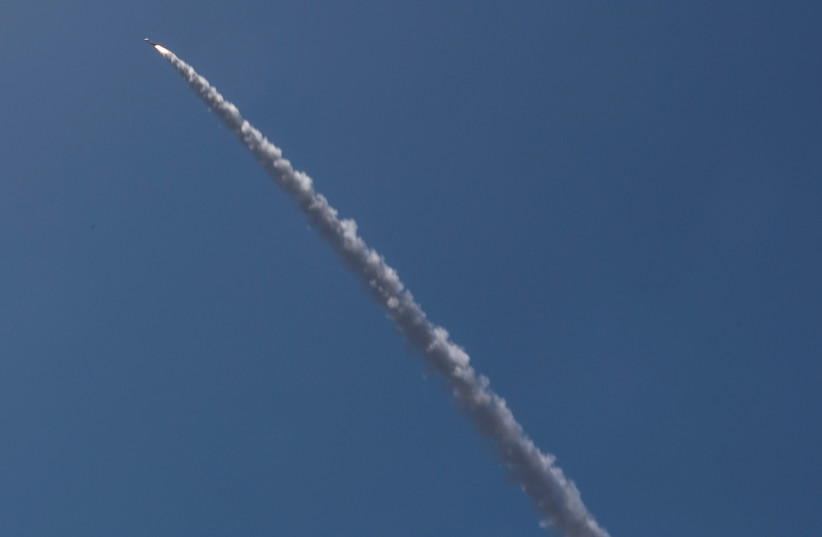The IDF by Wednesday afternoon at 4:30 p.m. had already struck over 100 targets of terror groups in Gaza, with a primary focus on Islamic Jihad.
Already around 12:30 p.m., the IDF had initiated a widespread preemptive strike on a variety of Islamic Jihad rocket positions, including some concealed from the public eye, after seeing intelligence signs that the terror group was getting ready for a broad round of rocket attacks on Israel.
At 11:45 a.m., the IDF carried out its first attack of Wednesday on an Islamic Jihad crew that was getting ready to fire rockets near the southern Gaza city of Khan Yunis.
This incident came after a similar incident on Tuesday early evening.
After these incidents and along with other intelligence signs, IDf chief spokesman Brig. Gen. Daniel Hagri said that the IDF decided instead of only selectively attacking rocket crews on their way to their rocket firing positions, to preemptively attack a variety of concealed rocket positions that intelligence had previously found.

At that point, Hagari said that the IDF’s rationale was that it was better to put the Jihad organization back on its heels again, rather than trying to track dozens of rocket crews once they are already out near their positions.
So far the IDF’s analysis of why Islamic Jihad has not struck back more is a mix of the shock that the group went through from a surprise attack eliminating three of its top leaders and 10 key military positions, followed by the IDF successfully thwarting its initial attempts to strike back, said Hagari.
For example, the IDF’s attack on an anti-tank missile crew on Tuesday evening thwarted an initial move to use one of its more advanced weapons against Israel, as opposed to many of its rockets, which are less precise.
Hagari rejected any conception that Islamic Jihad is successfully using psychological warfare against Israel by rolling out its counter-strike slowly.
Rather, the IDF’s view would be that it has been consistent about keeping Islamic Jihad on its heels, but without getting drawn into a longer fight or a larger fight with Hamas.
IDF chief-of-staff Lt. Gen. Herzi Halevi was visiting the South early Wednesday afternoon to personally ensure that Israel's missile defense and other defense elements remain on the highest levels of alert.
There were also other reports of such preemptive strikes against rocket crews on Tuesday and there have been some confirmed similar reports in recent years, but the trend of hitting rocket crews before they fire is still a relatively new one.
Despite the airstrikes, Israel is still expecting Gaza terror groups, especially Islamic Jihad to try to respond at some point following the IDF's overnight Monday-Tuesday strike of the three top Islamic Jihad commanders.
Since then, Israel has been walking on eggshells nearly all day Tuesday and Wednesday waiting for the expected response, and in particular, whether Hamas will join in.
If Hamas joins in a serious way, the conflict could be extended longer than the multiple rounds Israel has had with Islamic Jihad which have all ended in less than 72 hours.